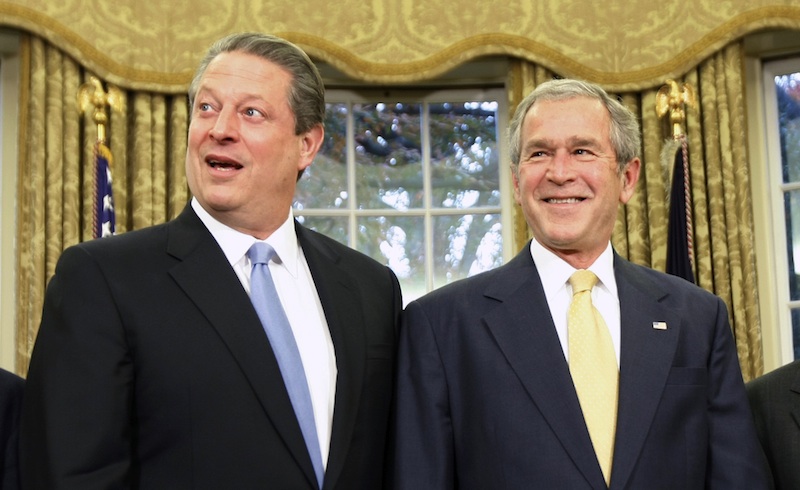Monday marked the first time ever that Bush v. Gore was cited by a Supreme Court justice in an opinion since the controversial 2000 decision that settled the presidential election.
Justice Clarence Thomas cited the case in his dissent in Arizona v. Inter Tribal Council, a case involving a voting law in Arizona. No other justice joined his dissent. Here’s what Thomas wrote in his footnote:
The NVRA’s “accept and use” requirement applies to all federal elections, even presidential elections… This Court has recognized, however, that “the state legislature’s power to select the manner for appointing [presidential] electors is plenary; it may, if it chooses, select the electors itself.” Bush v. Gore, 531 U. S. 98, 104 (2000)
The citation was caught by Pepperdine law professor Derek T. Muller and amplified in blog posts by court watchers Josh Blackman and Rick Hasen — the latter two observed that no Supreme Court justice has ever cited Bush v. Gore since the case.
What will be underdiscussed: Thomas cites Bush v. Gore in his dissent, slip op. at 14 n.2. http://t.co/32GuUNuUXX
— Derek T. Muller (@derektmuller) June 17, 2013
Some scholars have argued that the lack of Supreme Court citation of the major case is evidence that it was based on shoddy legal reasoning. Blackman, who calls Bush v. Gore an “unprecedent,” quoted a famous line from the 2000 majority opinion saying the jurisprudence was “limited to the present circumstances, for the problem of equal protection in election processes generally presents many complexities.”






